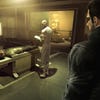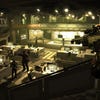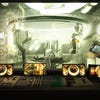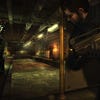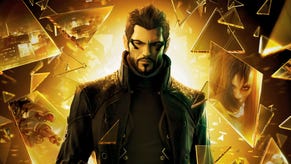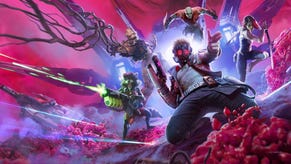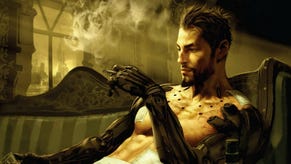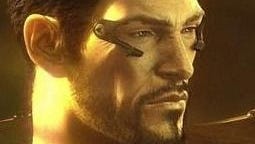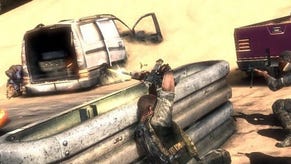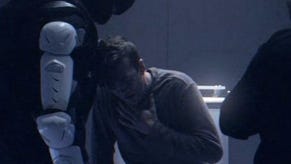Will Deus Ex: Human Revolution make you cry?
Eidos Montreal's Mary De Marle reveals the tricks of the writing trade.
When it comes to role-playing games, few things are as important as story, choice and dialogue. But when it comes to Deus Ex: Human Revolution, a game Eidos Montreal hopes will enhance the series' legacy, story, choice and dialogue are the most important things. This is where lead writer Mary De Marle comes in.
Speaking to Eurogamer ahead of the game's release, Mary reveals how videogame writers meet the challenge of the modern-day RPG, and dishes the dirt on how developers create spiralling conversation trees and simulate sophisticated player choice. She also discusses how conversation boss fights can be won and lost, and even leaves room for a word on Bill Gates and Richard Branson.
When the first one came out, everybody was so enamoured of it and talking about it and playing it. I remember going to GDC that year and listening to Sheldon Pacotti, the writer of both the first and second game, and just being blown away by everything he had to say. So it was a real big influence on my career because I saw it as the shining pinnacle of pace and story development possible.
The second game I played much later, so my memories of it are fresher than the other one. When I got hired to work on this it was one of those moments when you felt like your career has come round in full circle.
I came onto the game about four months into it. There were few things that were determined. They determined already they would do a prequel to the first game, they would set it in 2027, and it would deal with mechanical augmentations rather than nano ones. And a couple of other things that gave me the initial direction for my research to take.
I started then researching into everything from where is biotechnology today and where will it be in 18 years to possible conspiracy groups. So a lot of my inspiration, believe it or not, came from non-fiction and writings about transhumanism, the singularity and where will we go, and is technology going to lead us to heaven or hell? Even reading about Howard Hughes and Bill Gates to see what kind of people they are.
A lot of that fed the initial idea. I'm a drama junkie, as I like to say. I can never get enough of story because I'm very curious about characters and interpersonal things. So everything I've ever read both in science-fiction and fiction and every TV show I've ever seen feeds into it. It's difficult to pinpoint anything in particular. This project, the focus was on the non-fiction at first.
Here we are dealing with both high-powered CEOs and innovators who've changed the industry. It was really just getting his background, where he started, how he got to where he is, and then combining that with others. We actually looked at Richard Branson, too.
None of the characters in the game are Bill Gates, nor are they Richard Branson, but reading their lives and their backgrounds gave inspiration for some of the lives and backgrounds of our characters.
From a broad picture of just story, and all the different branchings on that, overall our story from a very high level is linear. You go from A to B to C. But we identify early on moments of choice and consequence where you can make a decision that will change and affect the lives of the people around you and the world around you.
Before we started writing the story we knew what the story, basically, was, but then we worked to say, 'How do we manifest that story in the game through the level design, and where are those key moments where their lives would be changed? And then, if so, how can they be changed, and where do we see the repercussions of those changes?'
So from that standpoint, it wasn't just me alone. It was working with a bunch of people to spur those ideas and to get it all down on paper before so we had something we could always refer to that we wouldn't forget three years later.






